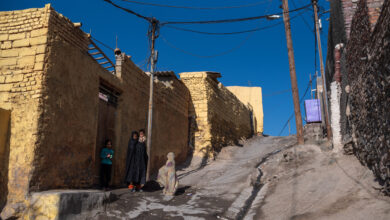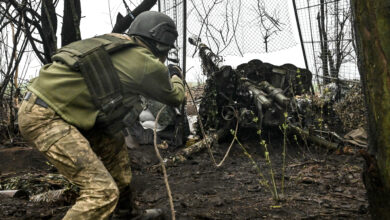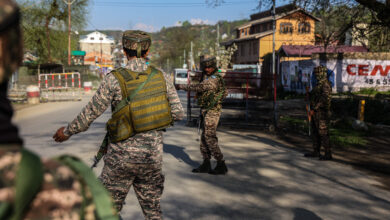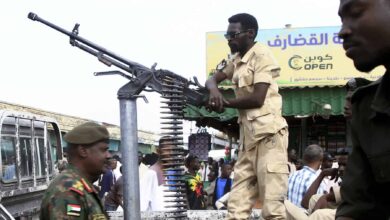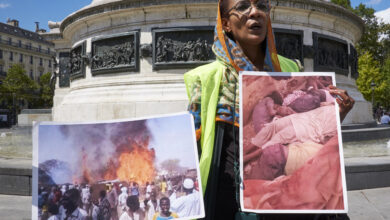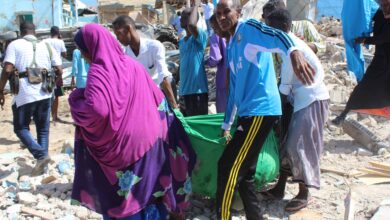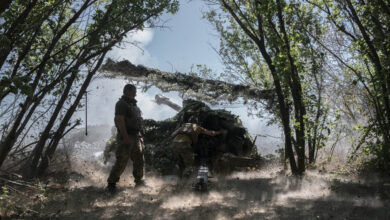Three Anglophone separatists were killed in clashes with Cameroonian security forces in the flashpoint Southwest Region town of Buea, a day before presidential polls, sources said on Saturday, October 6.
The incident on Friday followed the killing of an English-speaking priest by a soldier on Thursday in Bamenda, capital of the Northwest Region – the other largely English-speaking province engulfed by the anglophone separatist uprising.
The unrest came as Cameroonians prepared to vote in polls that will be marked by violence in the English-speaking regions and opposition manoeuvres to oust 85-year-old President Paul Biya who is seeking a seventh term.
“Three separatists were killed Friday in Small Soppo, Buea,” said a source close to the security forces, whose account was confirmed by witnesses contacted by AFP.
“They were killed during exchanges of fire between the security forces and the separatists,” added the source.
“I saw the bodies of three people in Small Soppo,” added one of the witnesses.
The army also attacked a separatist base at Lysoka, about 15 km from Buea, but no estimate for injuries or fatalities was immediately available.
In Bamenda the priest was killed in front of a church following a service, according to the statement which was signed by the archbishop of Bamenda, Cornelius Fontem Esua, as well assistant bishop Michael Miabesue Bibi.
A soldier fired “three shots into his neck and he died instantly,” the statement said.
The incidents follow the killings of a civilian, a police officer and a suspected separatist in the town of Kumba, 55 km (35 miles) north of Buea last week.
Earlier, on the night of September 26, two police officers were killed and a female police officer was injured on the outskirts of the beach resort town of Limbe in an area housing Anglophone separatists, a source told AFP, while on September 27, police shot dead six civilians and wounded another in Buea, witnesses said. That incident was corroborated by a security source in Cameroon’s capital Yaounde.
Around a fifth of Cameroon’s population of 22 million is anglophone, or English-speaking, while the remainder speak French. The linguistic division dates back to the colonial period – it became a German colony in 1884 but was divided between Britain and France after World War I.
In 1960, the French part gained independence, becoming Cameroon, and the following year, the British-ruled Southern Cameroons was amalgamated into it, becoming the Northwest and Southwest Regions. Both are in the northwest of the country.
For years, resentment built among anglophones, fostered by perceived marginalization in education, the judiciary and the economy at the hands of the French-speaking majority. Demands for greater autonomy were rejected by Biya.
Fighting has become a regular occurrence in both anglophone regions since October 2017, when separatists declared independence for the Republic of Ambazonia from mainly Francophone Cameroon.
There are now more than 1,000 separatist fighters who control “a significant proportion of rural areas and main roads,” and violence has claimed the lives of at least 420 civilians, 175 members of the security forces and an unknown number of separatists, according to the International Crisis Group think-tank.
Meanwhile, in the Far North region, Boko Haram jihadist fighters have been launching attacks since 2014, killing 2,000 civilians and soldiers and kidnapping about 1,000 people, according to the International Crisis Group.
Cameroon tense ahead of presidential election
Cameroon will vote in presidential elections Sunday amid tight security including a ban on travel by road, rail or air from 1700 GMT Saturday until the conclusion of voting.
The borders of the central African nation of 25 million people were also to be sealed 48 hours ahead of voting day, according to a decree seen by AFP.
In Mile-16, an Anglophone separatist stronghold located on the outskirts of the Buea, heavily-armed police manned checkpoints on Saturday, closely inspecting all inbound and outbound traffic.
“There are almost as many soldiers, policemen and intelligence officers as there are civilians,” said a source close to the security forces of the town which once had a population of nearly 100,000 people but is now largely deserted due to an exodus of people fleeing the conflict.
A vast security operation was mounted to clear suspected separatists in August with some 800 alleged secessionists moved out.
Cameroon’s 6.5 million eligible voters will cast their ballots on Sunday, although at least 246,000 people have fled their homes in the Southwest and 25,000 have left the country altogether for Nigeria, according to U.N. figures.
Eight candidates, including Paul Biya – elected Cameroon’s second president on November 6, 1982 – will face off in the polls.
They will feature a limited opposition coalition for the first time since 1992 after presidential hopeful Akere Muna on Friday threw his weight behind Maurice Kamto, leader of the Movement for the Rebirth of Cameroon (MRC).
But the new coalition will not include Joshua Osih, leader of the largest opposition party, the Social Democratic Front.
Kamto’s campaign chief Paul-Eric Kingue on Friday said that a “massive fraud” was underway to ensure Biya wins, calling on party supporters to “fiercely resist” vote rigging.
Kingue alleged that polling cards have been forged and that voter registration has continued despite the process being officially closed.
“In 62 percent of areas, the Cameroon People’s Democratic Movement party is still adding names to the voter roll,” Kingue said.
In the last presidential election in 2011, Biya won a sixth term in office with 78 percent of votes, in an election the opposition and observers said was flawed.
“We’re not preparing for war, but wherever there is fraud, there will be a firm response,” Kingue said.
But the government hit back, saying that it would “not tolerate any disorder before, during or after the presidential vote”.
Communication Minister Issa Tchiroma Bakary said in a statement that “measures have been taken … to prevent any actions that might create violence or disorder around the elections.”
He added that “political figures linked to foreign interests were preparing groups of agitators to stir-up violence in the event that the results don’t go their way.”
With reporting from AFP



